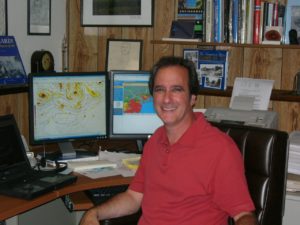Winter Weather Outlook
John Bagioni, a meteorologist and owner of Fax-Alert Weather Service, delivered his winter forecast to members of the New England Fuel Institute and the New York Propane Gas Association in recent weeks—and then he shared with Fuel Oil News.
“The big point that everybody in the forecasting field has been stressing is that we are going to be experiencing what we call an El Nino winter,” Bagioni said. “That’s the starting point.” An El Nino winter features above normal temperatures in the equatorial Pacific, Bagioni explained
“That will become what I call the background of our winter forecast,” the meteorologist said. How the winter unfolds will depend on the strength of El Nino. “When we have exceptionally warm water in the equatorial Pacific—classified as a strong El Nino—those almost always cause very warm winters across the United States. That’s kind of the kiss of death for the heating industry. We don’t expect that to happen this year. We think we’re going to see a weak to moderate El Nino,” Bagioni said.
“Many of the years that have had weak-to-moderate El Ninos have significantly large areas that end up running normal to colder-than-normal.”
For much of the eastern half of the country, the winter will probably be average, Bagioni said. “And the potential to have significant zones of colder than normal weather for the entire winter” — he called it the winter average—”is increased.”
Much of the eastern half of the country is expected to run from near normal to somewhat colder than normal, Bagioni said.
“Little changes in temperature pattern in the Pacific Ocean and other little weather features across the globe can take a normal to slightly below normal winter and produce areas of much colder than normal conditions from time to time,” Bagioni continued. “We think that’s going to occur. I don’t think there’s anybody who’s confident that they can pick out exactly where those are going to be yet, but we do think there’s going to be some zones, and they might be substantially large zones, where we’ll clearly end up with a colder than normal winter when we’re all said and done.”—Stephen Bennett
PICTURED: John Bagioni
Photo courtesy of John Bagioni.
